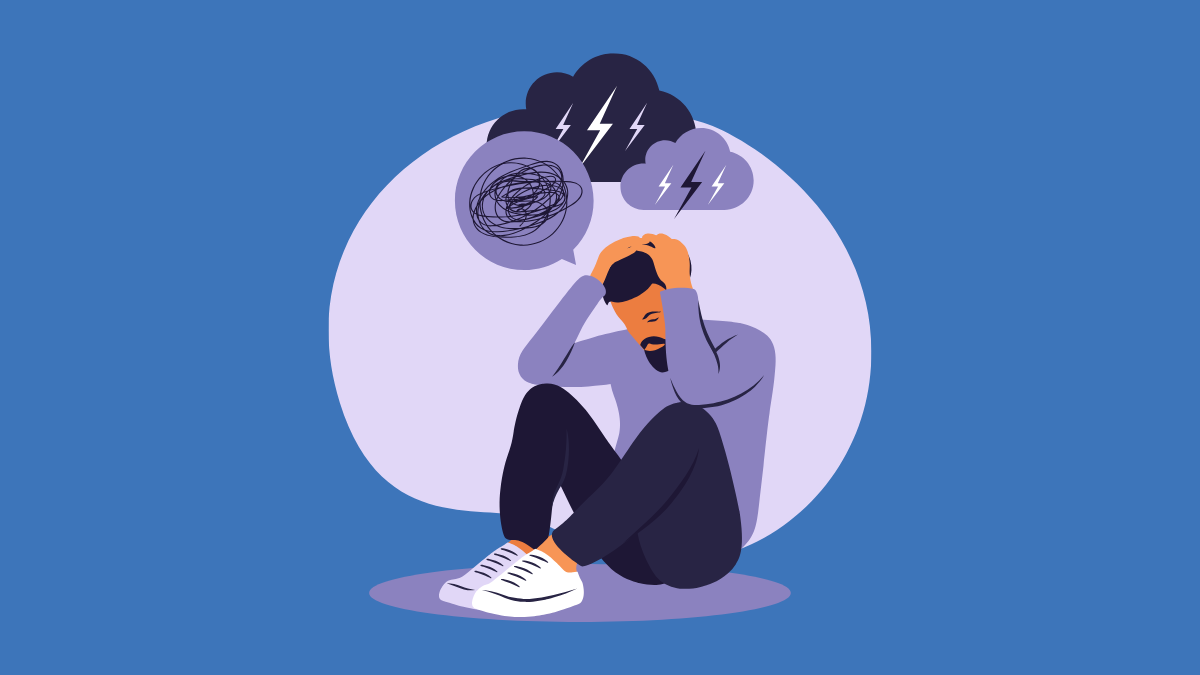Depression is one of the most prevalent and debilitating mental health conditions affecting millions of people worldwide. It is not just a passing feeling of sadness but a complex and multifaceted disorder that impacts emotional, physical, and mental well-being. Despite the increasing awareness and understanding of depression, it remains a misunderstood and often stigmatized illness. This article explores the nature of depression, its symptoms, causes, and treatment options available to help individuals manage and overcome the condition.
What is Depression?
Depression, clinically known as major depressive disorder (MDD), is a mood disorder characterized by persistent feelings of sadness, hopelessness, and a lack of interest or pleasure in activities once found enjoyable. It can affect anyone, regardless of age, gender, or background, and its effects can be far-reaching. People with depression may struggle with everyday tasks, relationships, work, and even basic self-care. Depression is more than just feeling “down” for a few days; it is a persistent condition that can last for weeks, months, or even years.
Symptoms of Depression
The symptoms of depression can vary widely from person to person, but the most common signs include:
- Persistent Sadness or Low Mood: Feeling sad, empty, or hopeless most of the time is one of the hallmark symptoms of depression.
- Loss of Interest or Pleasure (Anhedonia): Individuals with depression often lose interest in activities they once enjoyed, such as hobbies, socializing, or work.
- Fatigue or Low Energy: People with depression may feel physically drained and unable to complete tasks, even those that are usually easy or routine.
- Changes in Appetite or Weight: Depression can lead to significant changes in eating habits, either an increase in appetite or a complete loss of interest in food, resulting in weight gain or loss.
- Sleep Disturbances: People may experience insomnia (difficulty sleeping) or hypersomnia (excessive sleep) as a result of depression.
- Feelings of Guilt or Worthlessness: A person with depression may constantly feel guilty or like they are a burden on others. These feelings can lead to negative self-talk and self-criticism.
- Difficulty Concentrating: Depression can impair cognitive functions, making it harder to focus, make decisions, or remember things.
- Physical Symptoms: Some individuals may experience unexplained physical symptoms, such as headaches, stomach problems, or chronic pain, without a clear physical cause.
- Thoughts of Death or Suicide: In severe cases, depression can lead to thoughts of self-harm or suicide. This is a medical emergency and requires immediate professional attention.
Causes of Depression
Depression does not have a single cause but rather is the result of a complex interplay of genetic, biological, environmental, and psychological factors. Some of the primary causes and risk factors include:
- Genetic Factors: Research has shown that depression tends to run in families, suggesting a genetic predisposition to the disorder. If a close family member, such as a parent or sibling, has experienced depression, an individual may be at an increased risk of developing it.
- Chemical Imbalance in the Brain: Depression is believed to be linked to imbalances in brain chemicals, such as serotonin, norepinephrine, and dopamine, which regulate mood, sleep, and other functions. These imbalances can interfere with normal brain activity and contribute to depressive symptoms.
- Hormonal Changes: Hormonal fluctuations, such as those that occur during pregnancy, postpartum, or menopause, can trigger depression in some individuals. Thyroid problems and certain medical conditions can also affect hormone levels and contribute to depression.
- Trauma and Stress: Stressful life events such as the death of a loved one, a divorce, or financial problems can trigger or exacerbate depression. Childhood trauma, abuse, or neglect may also increase the risk of depression later in life.
- Chronic Illness: People with chronic medical conditions such as diabetes, heart disease, or cancer are more likely to experience depression. The physical and emotional toll of living with a long-term illness can contribute to feelings of hopelessness and despair.
- Social and Environmental Factors: A lack of social support, isolation, or living in an unstable or abusive environment can increase the risk of depression. Additionally, socioeconomic factors such as poverty, unemployment, or living in a stressful community can exacerbate feelings of helplessness.
- Personality Factors: Certain personality traits, such as being overly self-critical or having a pessimistic outlook on life, can make an individual more vulnerable to depression. People with low self-esteem may be particularly susceptible.
The Impact of Depression
The effects of depression go beyond just the emotional and psychological domains. The condition can have significant consequences on a person’s physical health, relationships, and overall quality of life.
- Physical Health: Depression can lead to physical health problems such as chronic pain, headaches, digestive issues, and sleep disturbances. Additionally, it can lower the immune system’s ability to fight infections, making individuals more susceptible to illness.
- Relationships: Depression can strain relationships with family, friends, and romantic partners. Individuals with depression may withdraw from others, leading to feelings of isolation and misunderstandings.
- Work and Productivity: Depression can severely impact a person’s ability to focus, concentrate, and be productive at work or school. This can lead to decreased performance, absenteeism, and even job loss in extreme cases.
- Quality of Life: Living with depression can diminish a person’s overall sense of fulfillment and happiness. The persistent feelings of sadness, hopelessness, and lack of enjoyment can lead to a life that feels empty and without purpose.
Treatment Options for Depression
The good news is that depression is treatable. There are several treatment options available, including psychotherapy, medication, lifestyle changes, and alternative therapies. The most effective approach often involves a combination of these treatments, tailored to the individual’s specific needs.
- Psychotherapy (Talk Therapy): One of the most effective treatments for depression is psychotherapy, particularly cognitive-behavioral therapy (CBT). CBT helps individuals identify and change negative thought patterns that contribute to depression. Interpersonal therapy (IPT) and psychodynamic therapy are also commonly used forms of talk therapy that can help individuals address the root causes of their depression and develop healthier coping mechanisms.
- Medication: Antidepressant medications, such as selective serotonin reuptake inhibitors (SSRIs), serotonin-norepinephrine reuptake inhibitors (SNRIs), and tricyclic antidepressants (TCAs), are commonly prescribed to help balance the chemicals in the brain that regulate mood. These medications can help alleviate symptoms of depression, although they may take several weeks to show their full effect. It is important for individuals to work closely with their healthcare provider to find the right medication and dosage.
- Lifestyle Changes: Adopting a healthier lifestyle can significantly improve symptoms of depression. Regular exercise, a balanced diet, sufficient sleep, and practicing mindfulness or relaxation techniques can all contribute to better mental health. Establishing a routine and staying connected with supportive friends and family are also important factors in managing depression.
- Alternative Therapies: For some individuals, alternative therapies such as acupuncture, yoga, meditation, or herbal treatments may offer relief from depressive symptoms. While these treatments are not a substitute for traditional medical care, they can serve as complementary approaches to enhancing mental well-being.
- Electroconvulsive Therapy (ECT): For severe cases of depression that do not respond to medication or therapy, electroconvulsive therapy (ECT) may be considered. ECT involves the use of electrical currents to stimulate the brain and can be effective in treating severe depression, particularly when other treatments have failed.
Conclusion
Depression is a serious mental health condition that can have a profound impact on an individual’s life. It is important to recognize the signs and symptoms of depression and seek professional help if needed. Although the causes of depression are complex, effective treatment options are available to help individuals manage and recover from the condition. With the right support and intervention, people with depression can lead fulfilling lives and regain a sense of hope and well-being.











